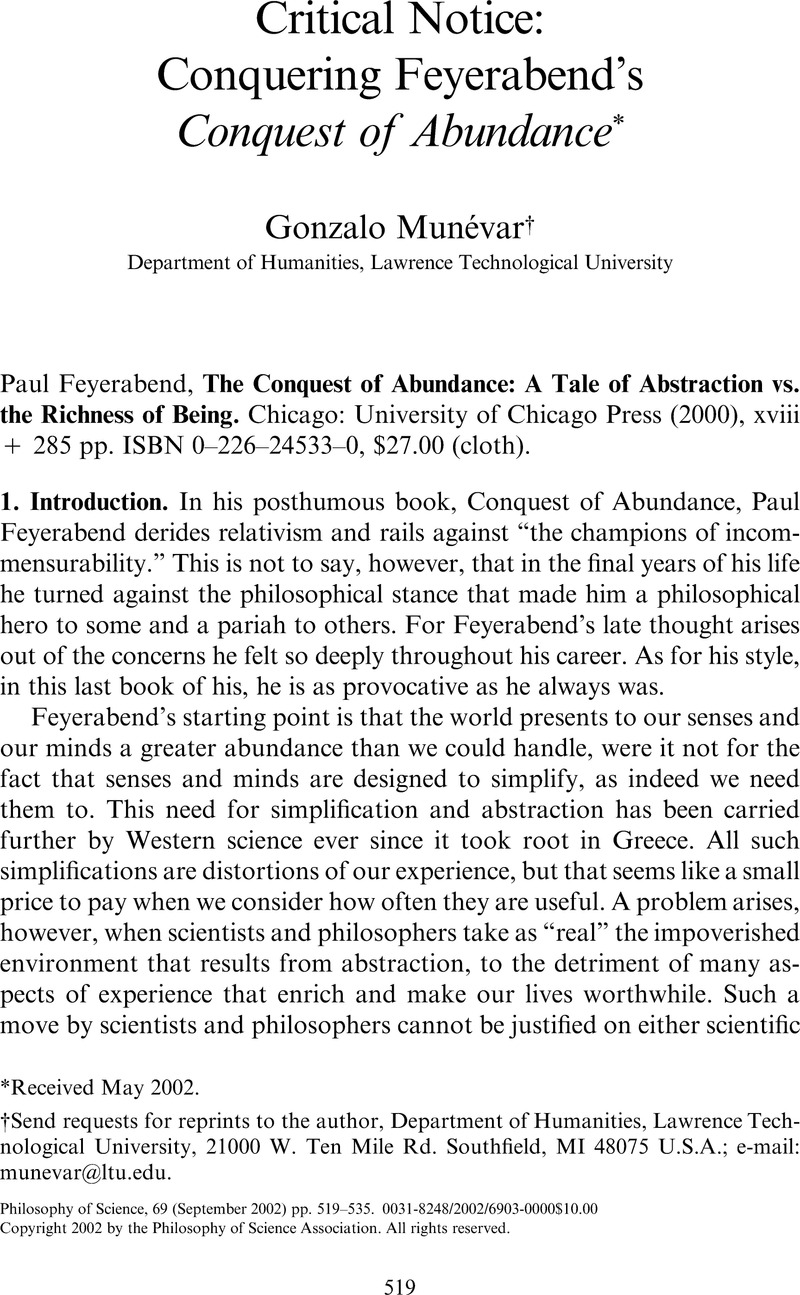Crossref Citations
This article has been cited by the following publications. This list is generated based on data provided by Crossref.
Munevar, Gonzalo
2012.
Evolution 2.0.
p.
43.
Tambolo, Luca
2014.
Pliability and resistance: Feyerabendian insights into sophisticated realism.
European Journal for Philosophy of Science,
Vol. 4,
Issue. 2,
p.
197.
Munévar, Gonzalo
Munévar, Gonzalo
and
McMurray, Phillip
2023.
Feyerabend: The Most Valuable Philosopher of the Twentieth Century.
Filozoficzne Aspekty Genezy ,
Vol. 20,
Issue. 2,
Frindte, Wolfgang
2024.
Wider die Borniertheit und den Chauvinismus – mit Paul K. Feyerabend durch absurde Zeiten.
p.
79.



